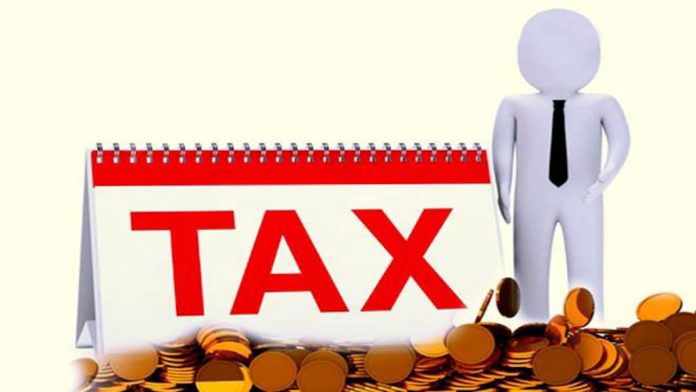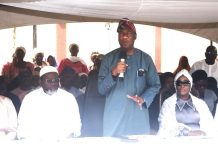In order to increase the nation’s meager non-oil earnings, it has been suggested that the federal and state governments pay closer attention to Personal Income Tax (PIT).
In contrast to Nigeria, where all 774 LGs, 36 States, and the FCT combined only managed to collect a pitiful sum of N1.23 trillion, the South African Revenue Authority’s performance revealed that PIT accounted for 35% of the total $107 billion ($37.45 or N15.54 trillion) the country collected last year.
Analysts claim that while tax incentives and waivers were once in style, they are no longer desirable in today’s globalized and interconnected market economy.
A total of N17.470 trillion was collected in 2021 from the FIRS, N6.405 trillion from Customs, N2.240 trillion from DPR (Royalty), N1.619 trillion from the Joint Tax Board (36 states), N132 billion from the FCT, and N5.844 trillion through tax waivers as per TES.
It is essential to note that it is admirable that the National Assembly and the Executive are sensitive to stimulating investments in particular areas or reviving struggling businesses through the provision of tax advantages.
The paper, which was received Tuesday, noted that tax incentives “must be emphasized here because taxes are only applicable to profits earned by enterprises; and where there is no profit, taxes normally do not apply.”
It emphasized, however, that tax incentives don’t always lead to better business performance because taxes only apply to company earnings and, in general, don’t in situations where there are losses.
A recent report claimed that between 2019 and 2021, the federal government gave tax exemptions to 43 additional businesses, including Dangote Sinotruck Limited, Lafarge Africa Limited, and Honeywell.
The Tax Expenditure Statement (TES) from the Budget Office’s Mid-term Expenditure and Strategy materials served as the basis for the study.
According to the TES report cited in the article, the federal government lost out on N4.2 trillion in 2019 from its two primary income sources, the Company Income Tax (CIT) and the Value Added Tax (VAT). The research states that the expected revenue lost from CIT was calculated at N1.1 trillion and that lost from VAT was projected at N3.1 trillion.
Read Also: Jigawa govt destroys N1.7m adulterated food items
The most recent research, however, stated that tax waivers have historically been utilized by governments all over the world as a tool to boost economic growth, win investors’ trust, generate jobs, expand firms, and generally foster an atmosphere that makes doing business easy.
These are a few of the long-term multiplier impacts that the tax waivers are expected to have on the economy. It is odd that the study did not draw attention to these problems. It also failed to recognize that the publishing of the TES document was a strong declaration of government action and assistance for qualified enterprises in order to help them break even, develop their production capacity, and become significant taxpayers.
According to the report, “the report failed to take into account the contribution of other tax types to the country’s revenue purse, such as Customs’ Duties, Royalties, Personal Income Tax, and all taxes collected by the 36 states and the Federal Capital Territory, as well as the waivers, including taxes forgone in 2019 – 2021 as it is normally done by other countries when reporting revenue performance.”
The report also neglected to highlight that three of the top 10 richest Africans are Nigerians, making it difficult for their home governments to collect taxes from them.
“Take the situation of one country where a single person paid PIT of over $500 million in a year; and that person is not the richest in that country,” it said. Second, compared to other African nations, Nigeria’s disjointed tax system makes it difficult for it to completely realize its revenue potential.
“Countries analogous to Nigeria in Africa are doing far better in utilizing the potential for tax revenue since their tax system is harmonised, i.e. they have a single tax authority,”
“These countries’ harmonised tax systems (Single Revenue Authorities) allowed them to operate more effectively and pro-actively than in Nigeria, where the tax authorities (for political reasons) are unable to agree on fundamental issues such as the common taxpayer registration system, Tax Identification Number, etc.,” it was added.
This, it was remarked, further demonstrates the need for the general public to comprehend how tax procedures such as the awarding of tax waivers and pioneer status as well as tax harmonisation actually function.
“To be clear, what is referred to as the pioneer status is a promotion provided by the Federal Government to exempt enterprises from paying income tax in part or in full for a specific period. Many countries, including Nigeria, help new businesses during their initial stages so they can use the tax savings to pay for the infrastructure they need to stabilize their operations.
“The corporations who have correctly established their businesses later pay taxes at a higher scale. In this manner, the government gains economic development while also collecting more current taxes, allowing it to recover taxes that were waived.
Additionally, because of the new global minimum tax regulations, using tax incentives to promote economic development is no longer in vogue. This new system is applicable when income that is not taxed in the jurisdiction where it is earned is consolidated and is subsequently taxed in another jurisdiction. It is then unnecessary to offer additional tax breaks or incentives.
According to the statement, “On tax harmonisation, the federal government has been clamoring to heed the need for the comprehensive harmonisation of the tax system to enable a broad-based tax system that provides larger income.”
“The federal government’s commitment to changing the country’s tax system is demonstrated by its focus on tax harmonisation. However, it is believed that the federal government would put this plan into practice. For instance, it may pass legislation to harmonize the tax code and create a single tax administration to handle all of the nation’s taxes, including PIT.
Read Also: 2023: APC disowns Ngige for not choosing Tinubu over Peter Obi
“This would result in a more careful and effective approach to tax collection, guaranteeing that the government collects a sizable amount of revenue. The harmonisation of the tax system is therefore the route to go for a higher revenue return for the nation.
“As a nation, we ought to stop just talking about generating revenue. There are nations that have lower revenue potential than Nigeria yet are succeeding in their efforts to generate revenue because they approach it like a company. For the Nigerian government to fully realize its revenue potentials, it must embrace this business-like approach to taxing, it continued.















